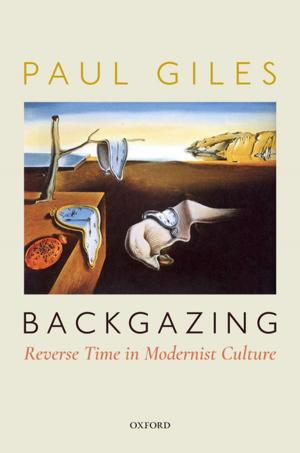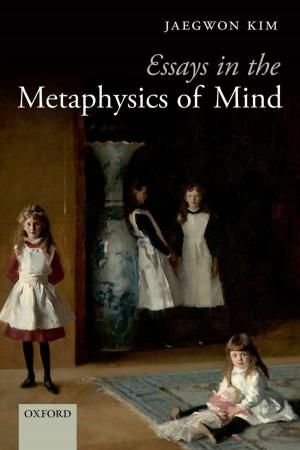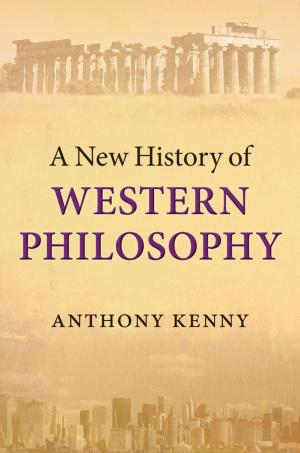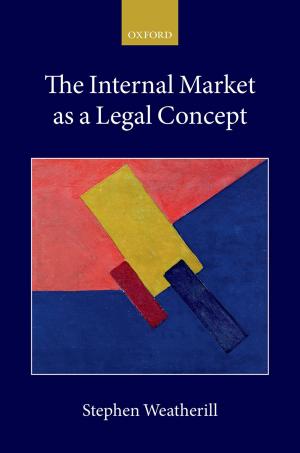Self Impression
Life-Writing, Autobiografiction, and the Forms of Modern Literature
Fiction & Literature, Literary Theory & Criticism, European, Biography & Memoir| Author: | Max Saunders | ISBN: | 9780191614736 |
| Publisher: | OUP Oxford | Publication: | April 22, 2010 |
| Imprint: | OUP Oxford | Language: | English |
| Author: | Max Saunders |
| ISBN: | 9780191614736 |
| Publisher: | OUP Oxford |
| Publication: | April 22, 2010 |
| Imprint: | OUP Oxford |
| Language: | English |
I am aware that, once my pen intervenes, I can make whatever I like out of what I was.' Paul Valéry, Moi. Modernism is often characterized as a movement of impersonality; a rejection of auto/biography. But most of the major works of European modernism and postmodernism engage in very profound and central ways with questions about life-writing. Max Saunders explores the ways in which modern writers from the 1870s to the 1930s experimented with forms of life-writing - biography, autobiography, memoir, diary, journal - increasingly for the purposes of fiction. He identifies a wave of new hybrid forms from the late nineteenth century and uses the term 'autobiografiction' - discovered in a surprisingly early essay of 1906 - to provide a fresh perspective on turn-of-the-century literature, and to propose a radically new literary history of Modernism. Saunders offers a taxonomy of the extraordinary variety of experiments with life-writing, demonstrating how they arose in the nineteenth century as the pressures of secularization and psychological theory disturbed the categories of biography and autobiography, in works by authors such as Pater, Ruskin, Proust, 'Mark Rutherford', George Gissing, and A. C. Benson. He goes on to look at writers experimenting further with autobiografiction as Impressionism turns into Modernism, juxtaposing detailed and vivacious readings of key Modernist texts by Joyce, Stein, Pound, and Woolf, with explorations of the work of other authors - including H. G. Wells, Henry James, Joseph Conrad, Ford Madox Ford, and Wyndham Lewis - whose experiments with life-writing forms are no less striking. The book concludes with a consideration of the afterlife of these fascinating experiments in the postmodern literature of Nabokov, Lessing, and Byatt. Self Impression sheds light on a number of significant but under-theorized issues; the meanings of 'autobiographical', the generic implications of literary autobiography, and the intriguing relation between autobiography and fiction in the period.
I am aware that, once my pen intervenes, I can make whatever I like out of what I was.' Paul Valéry, Moi. Modernism is often characterized as a movement of impersonality; a rejection of auto/biography. But most of the major works of European modernism and postmodernism engage in very profound and central ways with questions about life-writing. Max Saunders explores the ways in which modern writers from the 1870s to the 1930s experimented with forms of life-writing - biography, autobiography, memoir, diary, journal - increasingly for the purposes of fiction. He identifies a wave of new hybrid forms from the late nineteenth century and uses the term 'autobiografiction' - discovered in a surprisingly early essay of 1906 - to provide a fresh perspective on turn-of-the-century literature, and to propose a radically new literary history of Modernism. Saunders offers a taxonomy of the extraordinary variety of experiments with life-writing, demonstrating how they arose in the nineteenth century as the pressures of secularization and psychological theory disturbed the categories of biography and autobiography, in works by authors such as Pater, Ruskin, Proust, 'Mark Rutherford', George Gissing, and A. C. Benson. He goes on to look at writers experimenting further with autobiografiction as Impressionism turns into Modernism, juxtaposing detailed and vivacious readings of key Modernist texts by Joyce, Stein, Pound, and Woolf, with explorations of the work of other authors - including H. G. Wells, Henry James, Joseph Conrad, Ford Madox Ford, and Wyndham Lewis - whose experiments with life-writing forms are no less striking. The book concludes with a consideration of the afterlife of these fascinating experiments in the postmodern literature of Nabokov, Lessing, and Byatt. Self Impression sheds light on a number of significant but under-theorized issues; the meanings of 'autobiographical', the generic implications of literary autobiography, and the intriguing relation between autobiography and fiction in the period.















